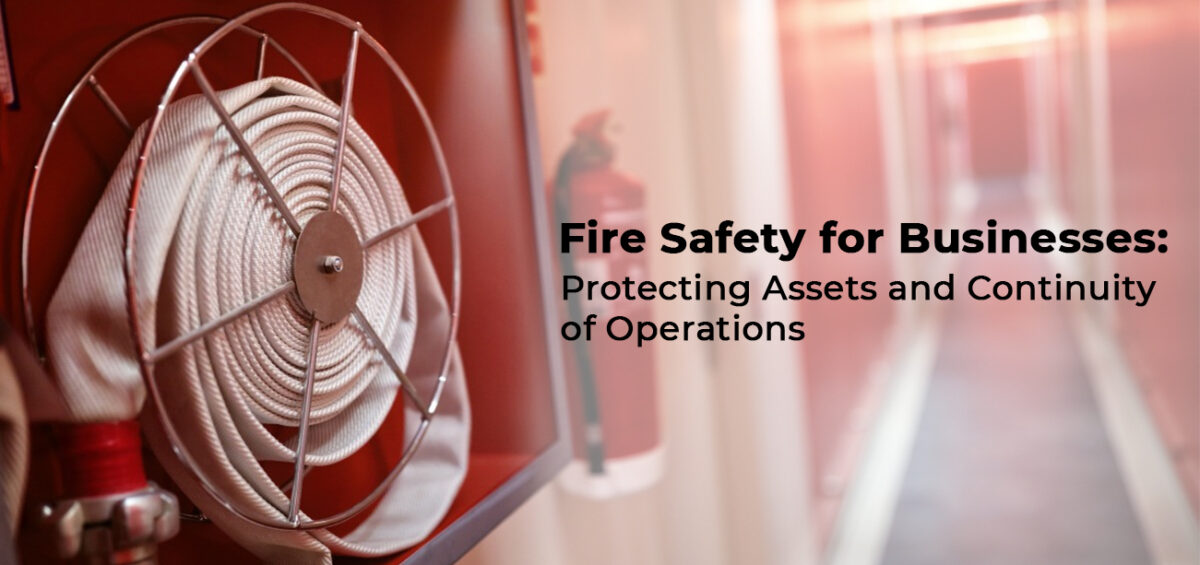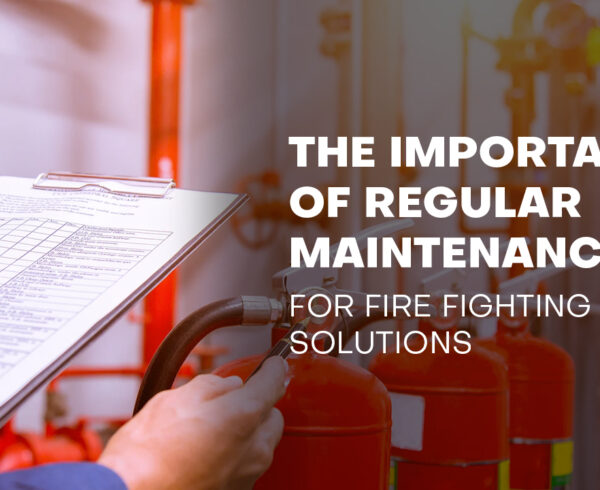
When it comes to running a successful business, ensuring the safety and well-being of employees and protecting valuable assets should be a top priority. Fire incidents can have devastating consequences, including damage to property, loss of critical data, and even harm to human lives. Implementing robust fire safety measures is essential for businesses to protect their assets, maintain continuity of operations, and provide a secure environment for employees and customers. In this blog post, we will explore the importance of fire safety for businesses and discuss key strategies and best practices to minimize fire risks.
Understanding the Risks:
Businesses of all sizes and industries face inherent fire risks. Faulty electrical systems, flammable materials, inadequate fire prevention measures, and human error are just a few examples of factors that can contribute to fire incidents. It is crucial for business owners and managers to conduct a thorough assessment of potential fire hazards specific to their operations and take proactive steps to mitigate these risks.
Developing a Fire Safety Plan:
A comprehensive fire safety plan is the foundation of effective fire prevention and response. This plan should include clear evacuation procedures, designated assembly points, and detailed emergency contact information. Additionally, it should outline the roles and responsibilities of employees, including designated fire wardens or marshals, who will be responsible for guiding others to safety during an emergency.
Installing Fire Detection and Suppression Systems:
Early detection of fires is crucial for minimizing damage and ensuring the safety of occupants. Businesses should invest in reliable fire detection systems, such as smoke alarms, heat detectors, and flame sensors, strategically placed throughout the premises. These systems can provide early warnings, allowing employees to initiate evacuation procedures promptly.
Furthermore, the installation of automatic fire suppression systems, such as sprinklers or gas suppression systems, can significantly reduce the spread of flames and control the fire until emergency responders arrive. These systems should be regularly inspected and maintained to ensure their functionality.
Educating and Training Employees:
Effective fire safety requires the active participation of all employees. Regular training sessions should be conducted to educate employees about fire hazards, evacuation procedures, and proper use of fire extinguishers. Employees should be familiar with escape routes, assembly points, and how to respond calmly and efficiently in an emergency situation. Training programs can also include simulated fire drills to reinforce preparedness and identify areas that require improvement.
Securing Critical Data and Assets:
For many businesses, data and assets are invaluable and irreplaceable. Implementing proper fire-resistant storage systems, such as fireproof safes or cabinets, can safeguard important documents, records, and equipment from fire damage. Additionally, maintaining off-site backups of critical data ensures business continuity in the event of a fire.
Regular Inspections and Maintenance:
To ensure ongoing fire safety, businesses should conduct regular inspections of their premises, including electrical systems, fire alarms, emergency exits, and fire extinguishers. Any potential issues or deficiencies should be addressed promptly by qualified professionals. Routine maintenance and testing of fire safety equipment are essential to ensure their functionality during an emergency.
Collaboration with Local Fire Services:
Establishing a strong partnership with local fire services is crucial for businesses. Firefighters can provide valuable guidance on fire safety regulations, conduct inspections, and offer training resources. Building these relationships fosters a proactive approach to fire safety and enhances emergency response capabilities.
Fire safety is an integral part of running a successful business. By prioritizing fire prevention, implementing effective detection and suppression systems, educating employees, and collaborating with local fire services, businesses can minimize fire risks, protect their assets, and ensure the continuity of operations. Remember, a proactive approach to fire safety not only safeguards the well-being of employees and customers but also preserves the reputation and long-term success of the business.
Keywords: #FireSafety #BusinessSafety #AssetProtection #ContinuityOfOperations #FirePrevention #FireDetection #FireSuppression #EvacuationProcedures #EmergencyPreparedness #FireSafetyPlan #EmployeeTraining #FireDrills #CriticalDataProtection #Inspections #Maintenance #Collaboration #LocalFireServices #BusinessContinuity #ReputationProtection




